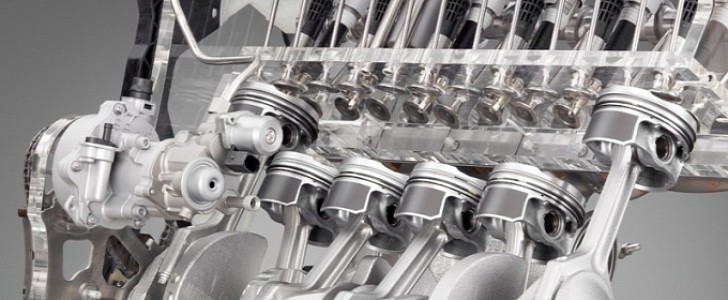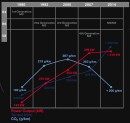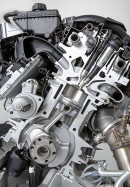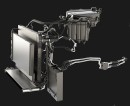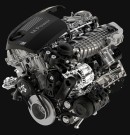BMW has yet to announce any plans that involve stopping the development of internal combustion engines. Instead, the German company is working on a new generation of gasoline and diesel inline-six-cylinder engines, as well as V8 engines, even though the latter might be gasoline only.
While the decision may sound surprising if we consider that some of its rivals have pledged to stop selling internal combustion engines in Europe by a certain date, the reasoning behind BMW's decision does make sense. For example, Audi wants to eliminate internal combustion engines from its lineup by 2033.
Meanwhile, BMW has no plans to force customers into choosing one type of propulsion or another, as the company wants to lead the field in both combustion-engined and alternative powertrain solutions.
As Frank Weber, the company's development director, explained in an interview with the Germans at Auto Motor und Sport, the company will need "state-of-the-art combustion engines" for "a few years" to "effectively reduce emissions in the passenger car sector on a global scale."
In other words, BMW's development director notes that the company will continue to work on the next generation of internal combustion powertrains. The new generation of six-cylinder engines from BMW promises an even further reduction in emissions, while still delivering on performance expectations.
The next generation of inline-six-cylinder engines from BMW is set to have "something completely new" in the cylinder head. The latter is meant to bring a reduction in emissions. The company first launched its variable valve timing system in the early 1990s, which was later followed by a variable valve lift system called Valvetronic.
With VANOS and Valvetronic, BMW has improved the fuel economy of its engines, along with a reduction of emissions, when they were introduced. Used together, the two systems provide what is described as an infinite adjustment of intake valve timing and duration, which eliminated the requirement for a throttle body in many gasoline engines made by the company.
If we were to guess here, BMW might have expanded the use of its variable valve duration system to allow the next generation of engines to operate in the Miller or Atkinson cycles for improved fuel economy and reduced emissions. However, that is just one possibility, and BMW might have something even more advanced up its sleeve.
Meanwhile, BMW has no plans to force customers into choosing one type of propulsion or another, as the company wants to lead the field in both combustion-engined and alternative powertrain solutions.
As Frank Weber, the company's development director, explained in an interview with the Germans at Auto Motor und Sport, the company will need "state-of-the-art combustion engines" for "a few years" to "effectively reduce emissions in the passenger car sector on a global scale."
In other words, BMW's development director notes that the company will continue to work on the next generation of internal combustion powertrains. The new generation of six-cylinder engines from BMW promises an even further reduction in emissions, while still delivering on performance expectations.
The next generation of inline-six-cylinder engines from BMW is set to have "something completely new" in the cylinder head. The latter is meant to bring a reduction in emissions. The company first launched its variable valve timing system in the early 1990s, which was later followed by a variable valve lift system called Valvetronic.
With VANOS and Valvetronic, BMW has improved the fuel economy of its engines, along with a reduction of emissions, when they were introduced. Used together, the two systems provide what is described as an infinite adjustment of intake valve timing and duration, which eliminated the requirement for a throttle body in many gasoline engines made by the company.
If we were to guess here, BMW might have expanded the use of its variable valve duration system to allow the next generation of engines to operate in the Miller or Atkinson cycles for improved fuel economy and reduced emissions. However, that is just one possibility, and BMW might have something even more advanced up its sleeve.
